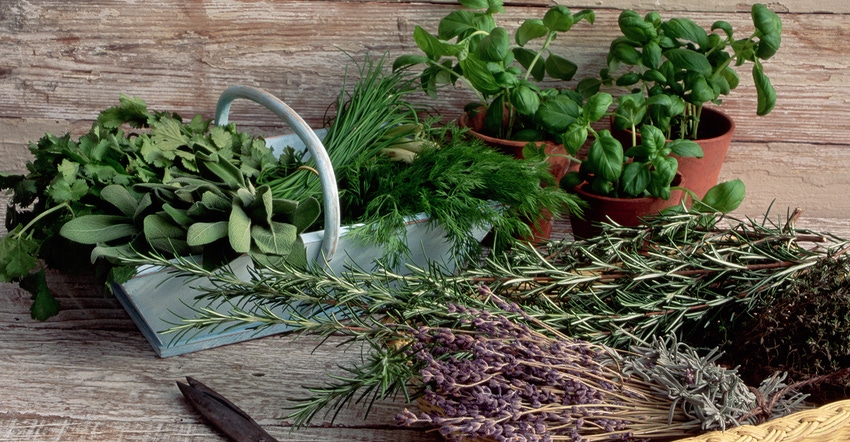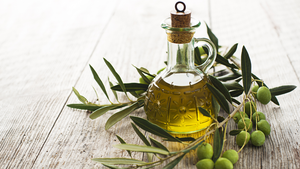Rosemary offers a natural, highly effective preservation solution for a wide range of food and drink products.

All over the world, consumers are increasingly turning their backs on artificial preservatives.
According to an international survey published by the Pew Research Center in September 2020, 53% of shoppers now consider food and drink featuring artificial preservatives to be unsafe.
FMCG Gurus, meanwhile, recently revealed that 57% of consumers globally prefer products that are free from additives, while 62% are concerned about ingredients that “sound chemical.”
Nonetheless, manufacturers still need to ensure that food and drink stay fresh for as long as possible. Food waste is a growing concern worldwide, and research from Accenture found that 64% of shoppers globally are stepping up their efforts to cut wastage in light of the COVID-19 pandemic.
Rosemary can resolve manufacturers’ dilemma. Known to consumers worldwide and easily recognizable on a label, this culinary herb is an ideal clean label alternative to synthetic antioxidants such as BHA, BHT, TBHQ and EDTA.
Thanks to the antioxidative and antimicrobial properties conferred by the plant’s active compounds, rosemary can be used to fight oxidation and microbial spoilage in a wide range of food and drink products, helping them stay fresh throughout the shelf life.
Whether on its own or as part of a blend, rosemary extracts can now be found in products including meat and poultry, sauces and dressings, bakery and snack foods, oils and fats, margarine and even beverages.
Antioxidation action
Oxidation is a major cause of deterioration in food and drink with lipid components, leading to unpleasant smells and flavors, color fading or browning (Pol J Food Nutr Sci. 2003;1354:87-100).
According to “Handbook of Antioxidants for Food Preservation,” one of the most effective ways to prevent this deterioration is to incorporate antioxidants that will limit the oxidation chain through several mechanisms. The book notes rosemary is rich in active components including a variety of antioxidants. Most significantly, it is believed to be the most abundant natural source of a potent antioxidative compound called carnosic acid.
As a result of these properties, rosemary extracts have been shown to provide an effective means of limiting the degradation that occurs when food and drink products are exposed to oxidation catalysts such as oxygen, light and temperature (Plant Physiol. 2017;175[3]:1381-1394).
Meat and poultry, for example, can be especially sensitive to oxidation. Products such as beef burgers often suffer rapid degradation, resulting in off-flavors and odors.
Laboratory tests—conducted by Naturex (part of Givaudan)—on precooked beef burgers using a liquid, oil-soluble and water-dispersible rosemary extract with 3.5% carnosic acid showed it can be highly effective in maintaining product freshness.
Over six days of refrigerated storage, the burgers containing the rosemary extract remained very stable, while the TBARS value—which measures secondary oxidation products—was four times higher in the control sample.
Rosemary can also significantly extend the shelf life of products across several other categories. In snacks and bakery goods, it can prevent the development of rancidity, compensate for the lack of stability of unsaturated fats, and stabilize nuts and seeds rich in polyunsaturated fatty acids (PUFAs).
In many oils and fats, meanwhile, rosemary can extend fry life and prevent off-flavors and rancidity development in end products. Even beverages featuring carotenoid-based colors or citrus flavors can be kept fresh for longer using rosemary.
Managing microbial spoilage
Microbial spoilage of products such as meat and poultry is another key issue for shelf life.
According to the International Food Information Council (IFIC) 2020 Food and Health Survey, foodborne illness from bacteria is the most widespread food safety issue for consumers today, with more than half of respondents naming it among their top three concerns.
While manufacturers previously might have relied on stringent processing conditions or the use of artificial preservatives to prevent the growth of pathogenic bacteria, these approaches are incompatible with the “back to basics” and clean label trends.
As part of tests to explore natural alternatives, Naturex assessed more than 200 botanical products to determine which were the most active against a range of bacteria, yeasts and molds. The extracts were assessed according to their minimal bactericidal concentration (MBC) and minimum fungicidal concentration (MFC).
The research revealed rosemary was one of the most effective preservatives—particularly when the extracts were abundant in carnosic acid. In fact, rosemary was shown to be active against 11 of 14 microbial species, even at fairly low concentrations.
As such, rosemary can provide a particularly effective natural preservation solution for meat and poultry, inhibiting outgrowth of several pathogenic bacteria found in these products such as listeria and salmonella (Phytochemistry. 2015;115:9-19).
Synergistic solutions
Botanical expertise and scientific understanding of food degradation mechanisms are key to delivering the most effective rosemary extracts, fueling the development of creative new solutions.
Much recent innovation has come with the use of rosemary in synergistic blends. Combining the advantages offered by different plant sources has opened up exciting preservation possibilities using natural, well-known ingredients such as acerola, green tea and pomegranate.
For example, Naturex’s laboratory tests on fresh ground meat have shown that a combination of rosemary and citrus extracts can deliver greater than 1.5 log reduction in listeria growth compared with a control sample. In addition, the sample containing the rosemary and citrus blend saw no deterioration in the fresh taste or odor of the meat, and the red color of the product was retained.
A blend of rosemary and spinach extracts, meanwhile, can deliver exceptional results in mayonnaise and salad dressings. Laboratory tests at both room temperature and 40°C have confirmed this blend can achieve a level of protection similar to EDTA in mayonnaise, preserving the product’s appearance, flavor and texture.
Rosemary on the rise
With consumer concern around artificial preservatives continuing to grow, there has never been a better time to use a clean label alternative.
As a powerful natural ingredient backed by extensive scientific research, rosemary offers a perfect solution.
Research continues to reveal new ways to optimize performance, and more manufacturers are now discovering the advantages of rosemary. Indeed, between 2008 and 2019, Mintel’s Global New Products Database (GNPD) indicated the number of product launches featuring rosemary extract on the label increased more than seven-fold globally.
Whether on its own or as part of a blend, rosemary can ensure that food and drink stay fresh for longer—while helping maintain a clean and clear ingredient list.
Allison Turner is the regional product manager for preservation at Givaudan. With a bachelor’s degree in chemical engineering and an MBA, she uses her 15 years of industry experience to tackle manufacturers’ food preservation challenges.
Author’s Note: The information contained in this article is not legal or regulatory advice, or otherwise a recommendation to the recipient and should not be relied on as such, and the recipient is solely and exclusively responsible for conducting its own regulatory and legal evaluation on its consumer facing product labeling and packaging, including all claims the recipient makes as well as how the recipient decides to identify and disclose ingredients on product consumer-facing labels.
About the Author(s)
You May Also Like






